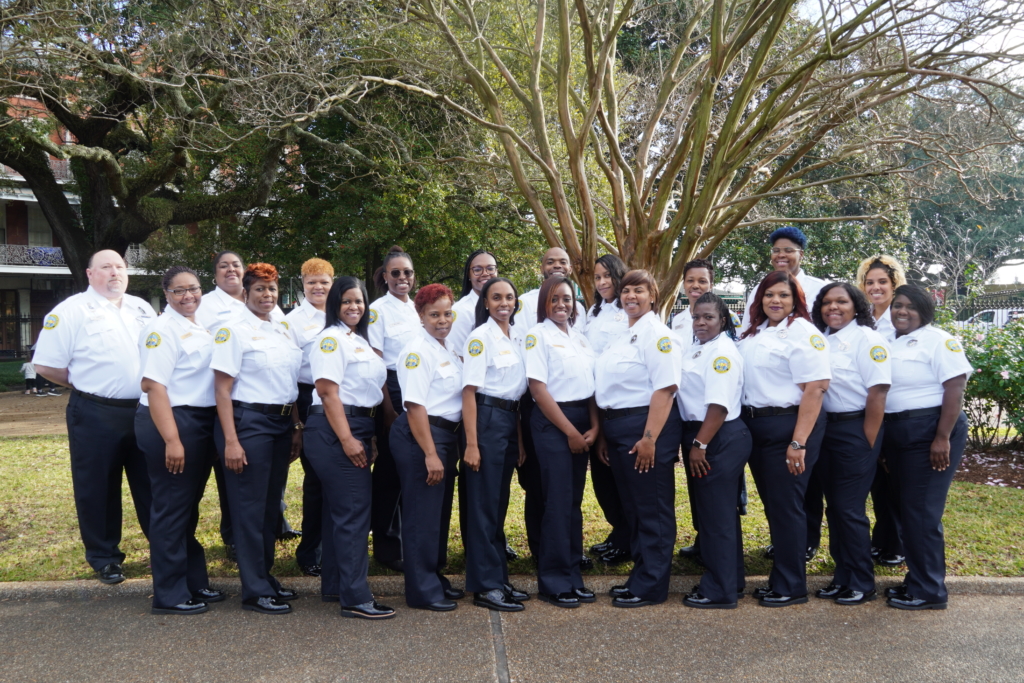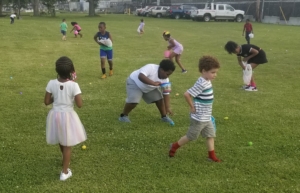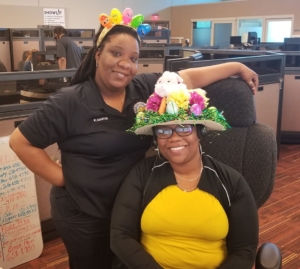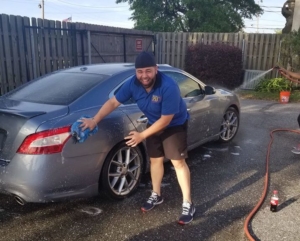
National Public Safety Telecommunicators Week:
Celebrating Our Heroes During COVID-19
As the world continues responding to the outbreak of COVID-19, very few are finding themselves untouched by the new realities of seclusion and uncertainty impacting our societies. Everyone we know is now limited in their ability to visit those we love, make new connections, or simply navigate the world around us in ways we previously took for granted. These impacts, one could argue, are felt especially deeply by the first responders who have dedicated their lives to helping others during times of need. And, at least in the eyes of modern history, the need has never been greater or on a grander scale than it is right now.
Even during times of normalcy, the burdens of emergency response easily tax the limits of mental, physical and spiritual health of those devoted to the service of others. An often thankless job, complete with long hours filled with untold horrors and sorrow, now contains the added bonus of responders exposing themselves and others to the very thing they are fighting against, a deadly virus sweeping through the streets of their cities like something dreamed up in a science fiction novel. The personal connections they cherish becoming even more limited out of pure exhaustion and the fear that they could spread this virus to the ones they hold most dear.
The public-safety telecommunicators at Orleans Parish Communication District are no exception to the demands of this new reality for first responders. While safeguards are in place – temperature checks, deep cleans, and regularly scheduled station sanitations – to provide the healthiest environment possible on the OPCD campus, these telecommunicator still take their health and that of their households into their hands each day they show up to work. Duty-bound to honor a commitment they made to their communities and themselves, these selfless Heroes Under the Headset – as we like to call them – have given up the ability to spend time with those they love, and, in some terrible occasions, to grieve the ones they have lost.
How We Celebrate Each Other
During those normal times that now seem like so long ago, the second week of April has been reserved as the Congressionally recognized National Public-Safety Telecommunicators Week – a week-long holiday celebrating and raising awareness for all of our beloved Heroes Under the Headset across the country. In years past, emergency communications centers in every district in each state have gone above and beyond to show their gratitude for America’s first first responders who stand along that thin gold line, guiding citizens through the chaos of emergency response.
At OPCD, sponsors have generously donated funds allowing us to provide celebrations for our heroes like only New Orleans can, complete with crawfish boils, Easter egg hunts, family movie nights and elegant awards ceremonies recognizing those who go beyond the call of duty.
OPCD 2019 National Public Safety Telecommunicators Week celebrations




This year, like so many other countless events and festivities impacted by COVID-19, the celebrations for National Public-Safety Telecommunicator Week have been canceled.
The interesting thing, though – and this will come as no surprise to those of us in the industry – complaints from telecommunicators about the lack of fanfare have been all but non-existent.
The public-safety telecommunicators of this world are not in this business for recognition. (Those who start their careers with ideas of grandeur in mind often find themselves disappointed to the point of finding another profession quickly enough.) No, public-safety telecommunicators do the work they do for the same reasons as every other first responder – because they have an innate desire to help others and know they have the strength necessary to handle the mental and physical strain of the duties required.
Public safety telecommunicators are especially immune to the idea of celebrity and pomp because they are often considered the unsung heroes of emergency response. It isn’t so difficult to understand why. When people imagine first responders, visions of police officers, fire fighters and paramedics immediately jump to mind, and with good reason. These brave men and women in uniform are out in the field, day-in and day-out, physically putting their lives in harm’s way for the betterment of those in our communities. They are visible, and the courageous acts they can be seen doing every day keep them in the front of our minds.
Telecommunicators, though, are different. To many, they are simply a voice on the other end of a telephone during an emergency, considered a pass-through of information from the citizen to the in-the-field responder. The middleman. And when a telecommunicator’s job is done correctly, their contributions to the emergency response can easily be forgotten or attributed to other functions within the process. Out of sight; out of mind.
New Role of Public Safety Telecommunicators
With the COVID-19 pandemic, though, public safety telecommunicators are seeing the spotlight begin to shine on them a bit more than usual. The telecommunicators at OPCD are a prime example of this increase in reputation. While calls for emergency services remain steady, calls for non-emergency services have skyrocketed over the past weeks as OPCD telecommunicators provide residents with the ability to report a variety of new COVID-19-related issues.
“The days of telecommunicators acting solely as call takers is long over,” said Tyrell Morris, OPCD Executive Director. “Only a very small percentage of our emergency communications center is used for call taking. The majority of the operations floor is used for intelligence gathering and information management.”
“Not only are we teaching people how to perform CPR or coaching residents on how to deliver a baby,” continued Morris. “We are using real-time location information to guide agents in the field to rescue a kidnapping victim, providing invaluable health background information of callers to paramedics as they are en route to an emergency event, and in the day-and-age of COVID-19, conducting wellness checks with people who have identified themselves as self-quarantined.”
This ability to evolve to the needs of the citizenry, directly and consistently, during a time of great need has, in itself, raised awareness of the tireless work telecommunicators and emergency communications centers conduct for the betterment of our communities.
Click the button below to watch the latest OPCD 2020 National Public Safety Telecommunicator Week Video!
How We Can Continue Showing Support – 911 SAVES Act
And while our telecommunicators are not ones to seek out the limelight, there are those of us who see them take on these added responsibilities without a second thought; we see them beam with pride after helping a citizen in trouble; we see them collapse in tears after a call where no help could be given, and we see them lift their chins and push their shoulders back before donning their headsets again to answer another. We who have seen these things and more also want to see these heroes rewarded for that hard work.
Fortunately, even though we cannot give them the celebration we would like at this time, there is a way that all of us can do our part to show our Heroes Under the Headset that we appreciate them and the sacrifices they make for us. We can write our congresspersons about the 911 SAVES Act.
You see, public safety telecommunicators are not actually recognized in the United States as first responders. Instead, they are designated as administrative clerks. To make matters worse, new pieces of legislation relating to COVID-19 response tend to pick and choose when public safety telecommunicators are designated as first responders or as clerks, often to the detriment of the telecommunicators in regards to paid leave, grants or tax benefits. Everyone can probably agree this is a travesty considering their role in the emergency response industry.
The 911 SAVES Act, a bipartisan bill waiting for a vote in the House of Representatives, would go a long way toward righting these wrongs, as it recognizes multiple aspects about public-safety telecommunicators that we already know:
- Public Safety Telecommunicators play a critical role in emergency response.
- The work Public Safety Telecommunicators perform goes far beyond merely relaying information between the public and first responders.
- Classifying public safety telecommunicators as Protective Service Occupations would correct an inaccurate representation in the Standard Occupational Classification, recognize these professionals for the lifesaving work they perform, and better align the Standard Occupational Classification with related classification systems.
So, if you have a little time on your hands – maybe you find yourself stuck at home for weeks on end for some reason, looking for a way to keep your mind occupied – consider writing your congressperson about the 911 SAVES Act. Let that congressperson know that you, like so many others, cannot understand why America’s first first responders are not considered first responders at all. That we, as a society, have seen these heroes take on our pain, heard them cry with us during great heartache, and have been helped by them through more crises than can be counted. And now we demand they finally receive the recognition they deserve. Not because they ask for it, but because they have earned it.
About the Orleans Parish Communication District (www.OPCDLA.gov)
Formed in 1982, the Orleans Parish Communication District is the PSAP for all emergency communications via 9-1-1, and non-emergency communications via 3-1-1, within Orleans Parish. The agency employs over 150 individuals and provides emergency medical dispatch, emergency fire dispatch, and emergency police dispatch for the millions of annual visitors and residents of the City of New Orleans. OPCD is a member of the Association of Public Safety Communication Officials (APCO) and the National Emergency Number Association (NENA).
The Mission of OPCD is to get the Right People to the Right Place at the Right Time, Better than Anybody Else in the World.
OPCD Contact:
Marcus W. Creel, MS
OPCD Public Engagement Manager
601.319.2024
mcreel@911nola.org
